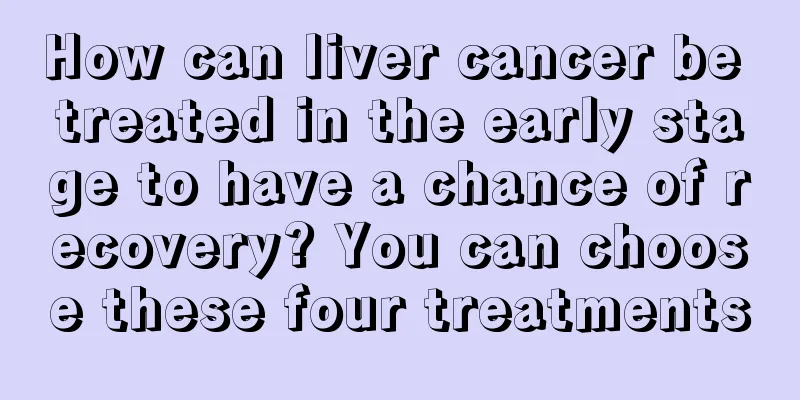4 treatments for esophageal cancer

|
Esophageal cancer is a malignant tumor originating from the esophagus. Early diagnosis and treatment are the key to achieving a radical cure. Clinical treatments for esophageal cancer include surgery, radiotherapy, chemotherapy, endoscopic treatment, and so on. 1. Surgical treatment The treatment of esophageal cancer is mainly surgical resection. In my country, the surgical resection rate of esophageal cancer exceeds 80%. Early esophageal cancer can be cured through surgical resection. The 5-year survival rate of esophageal cancer patients is about 30%. 2. Radiation therapy Radiotherapy is mainly used for patients with esophageal cancer who cannot receive surgical treatment, such as the elderly, upper esophageal cancer, middle and lower esophageal cancer with local invasion, etc. Cobalt-60 radiotherapy is often used, with an irradiation dose of 30 to 40 Gy. In addition, preoperative radiotherapy can be performed for tumors with larger lesions to shrink the cancer mass, which is beneficial to reduce intraoperative bleeding and improve the resection rate. 3. Chemotherapy The current status of chemotherapy for esophageal cancer is not satisfactory. It is mostly used as an auxiliary treatment method for esophageal cancer in clinical practice. Commonly used chemotherapy drugs include cisplatin, bleomycin, 5-fluorouracil, vincristine, mitomycin, etc. The effect of chemotherapy alone is poor, so two or three drugs are often used in combination for chemotherapy. 4. Endoscopic interventional therapy In recent years, endoscopic interventional treatment of esophageal cancer has become more and more widely used, and it is a good choice for patients who cannot undergo surgery. For small cancer lesions without lymph node metastasis, endoscopic mucosal resection can be performed; for early esophageal cancer, endoscopic ablation can be performed; for advanced esophageal cancer, simple dilation, esophageal stent placement, endoscopic tumor ablation , etc. can be performed according to the specific condition or patient requirements. |
<<: Non-treatment reasons why nasopharyngeal carcinoma is prone to infection
>>: Six major advantages of biological immunotherapy for lung cancer
Recommend
Common causes of redness on both sides of the nose
In traditional Chinese medicine, the color of the...
What are the detoxification reactions of moxibustion on the belly button
When you do moxibustion on your belly button, it ...
What tests should be done for lymphoma?
What tests should be done for lymphoma? I believe...
Is intravenous infusion effective for treating toothache?
Toothache is a very troublesome thing. The sympto...
How to properly take care of your hair after perming it?
Perming hair is very popular among young people, ...
How should lung cancer patients exercise?
How should lung cancer patients exercise? Many lu...
How to cook rice with a smart rice cooker
With the advancement of high technology, cooking ...
Is natural gas barbecue toxic?
Natural gas is now gradually becoming popular, an...
There is a bone protruding from the back of the head
A protruding bone at the back of the head is usua...
What is minimally invasive surgery for bladder cancer?
Minimally invasive surgery for bladder cancer is ...
What are the effects of low thyroid stimulating hormone and high thyroglobulin?
Thyroid function is known as the most important f...
What to do if you feel dizzy, nauseous and want to vomit due to food poisoning? These methods are the most practical
Common types of food poisoning include bacterial ...
Does herpes affect pregnancy?
Genital herpes is a relatively common sexually tr...
Microwave to remove underarm odor
The armpits of the human body are often rubbed an...
What are the dangers of having brain cancer
The incidence of brainstem tumors accounts for 1%...









